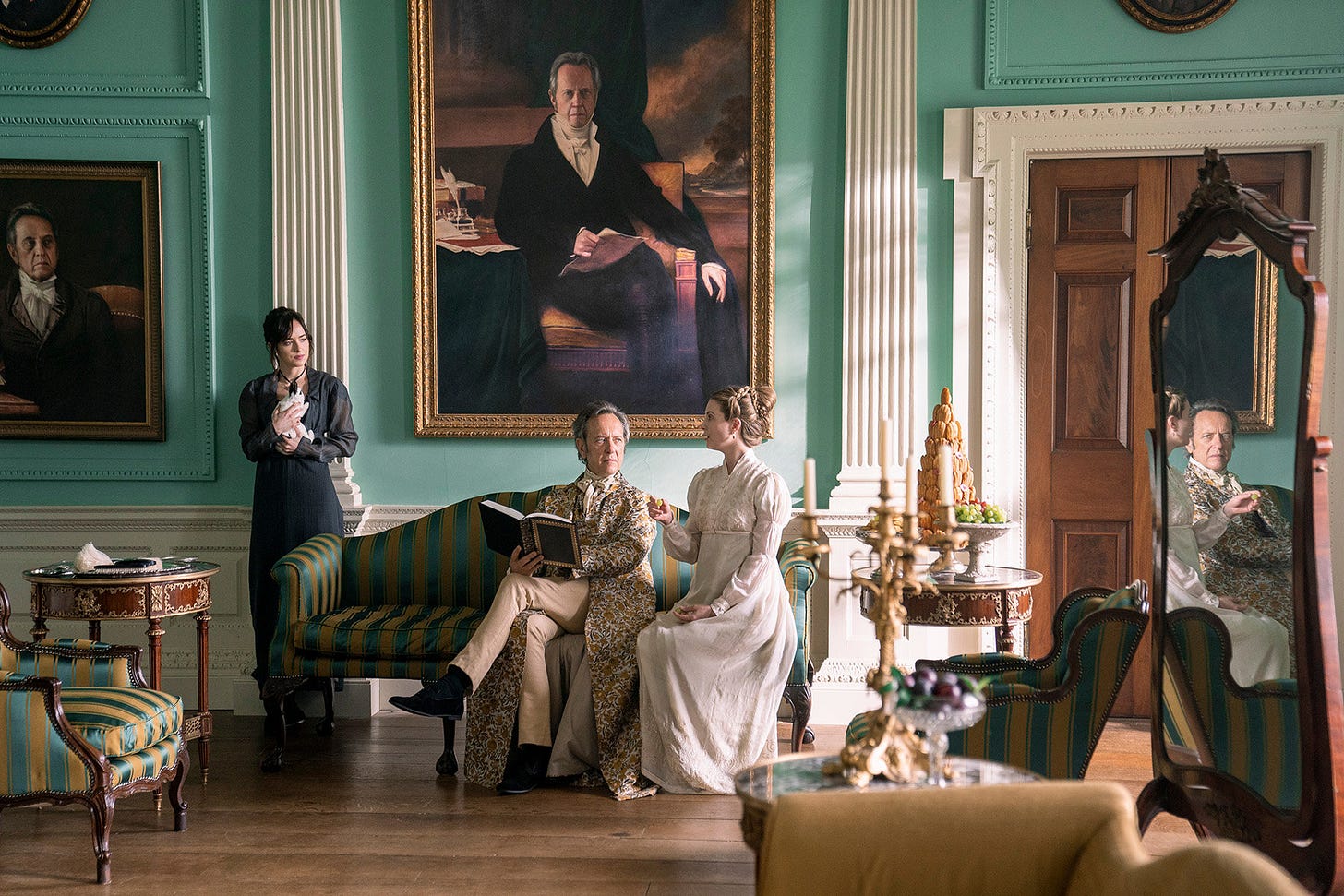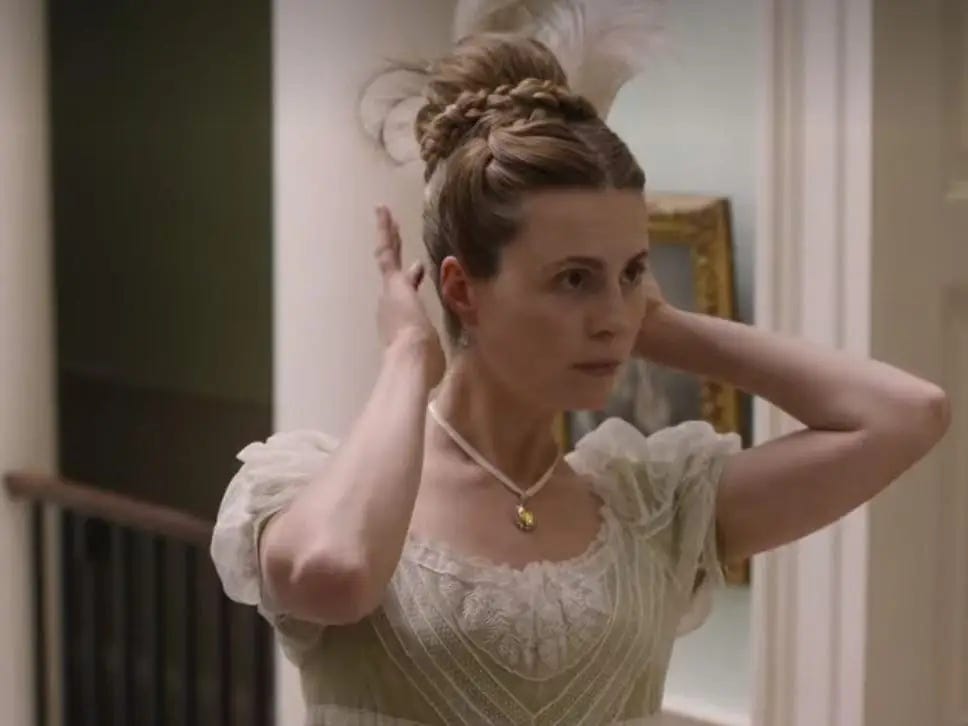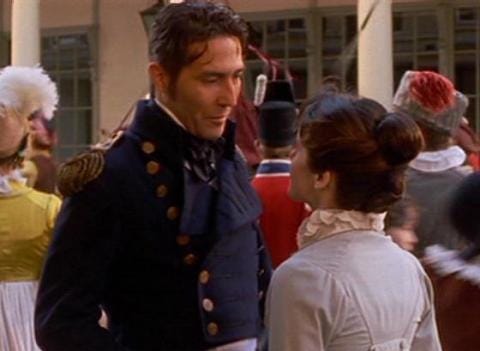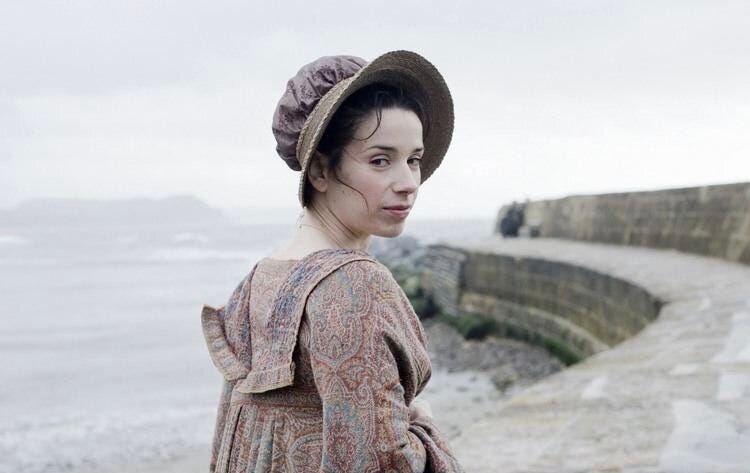At Four-and-Thirty, Am I Now Past My Bloom?
A reflection on past youth, past beauty, & how not to idolize either.
“It sometimes happens that a woman is handsomer at twenty-nine than she was ten years before… It was so with Elizabeth; still the same handsome Miss Elliot that she had begun to be thirty years ago… She was fully satisfied of being still quite as handsome as ever; but she felt her approach to the years of danger, and would have rejoiced to be certain of being properly solicited by baronet blood within the next twelve-month or two.”
— Persuasion (1817), Chapter I
On January 19th, 20—, I caught myself staring in the mirror longer than I normally would. Not much has changed about my person. My skincare regimen is the same as it was when I was eight-and-twenty & realized it was probably time to have a skincare regimen—perhaps I’ve since added a night creme for the crow’s feet about my eyes that only continue to deepen. I have, I’ll admit, spotted the occasional gray hair when my roots are in want of a touch-up with the boxed burgundy color that’s become my signature. Standing before the mirror on the morning of January 19th, the start of my 34th year around the sun, I felt a pang of anxiety that I know not what shade of natural red my hair would be without the dye. What am I masking from myself?
I’m anxious about watching my features change—I hope it happens gradually, & not all once. Since I’ve never thought myself particularly handsome, just pretty enough to do, perhaps I won’t find my continued loss of bloom to be the injury Elizabeth Elliot does. The uncertainty that surrounds getting older frightens me, not because I don’t know what I will become as I grow older, but because getting older (I’m not ready to use “aging” in regards to myself, & I’m much too old to say “growing up”) has the effect of collapsing time. On this birthday, I suddenly feel Elizabeth Elliot & Jane Austen to be defining points on my own collapsing timeline. There’s the 29-year-old Elizabeth Elliot at the start of Persuasion who feels “her approach to the years of danger” despite “being still quite as handsome as ever” on one side, & the 41-year-old Jane Austen at the height of her powers on the other. A sliding scale to forty, & I take comfort that I’m still closer to 29 than 41.
“On this birthday, I suddenly feel Elizabeth Elliot & Jane Austen to be defining points on my own collapsing timeline.”
I know Elizabeth Elliot is a strange character to align myself with. Not even the heroine of Persuasion, but Anne’s vain & conceited older sister (& Sir Walter’s favorite daughter), & not someone the narrator or Jane care for at all. Still, I sympathize with Elizabeth in the first chapters of the novel, & I think we’re meant to feel sorry for her because it is sad how she bases her self-worth on beauty & rank, unlike Anne who has her “elegance of mind” to fall back on with her early loss of “bloom.” She’s in danger, of course, because she finds herself almost thirty & unmarried, having been disappointed by the only man she could consider a suitable match (in terms of rank, looks, & fortune). The pain is greater still for Elizabeth because she’s beautiful, “as blooming as ever,” according to Sir Walter. It isn’t she who should fear becoming a spinster! While she still might be perceived as beautiful & youthful, women in 18th- & 19th-century England didn’t have the luxury of believing age to be only a number—it represented their reproductive value.

I’m returning to Persuasion, the novel I’ve read only once, because I think I can now fully appreciate it. In my 20s, I found Anne boring & insufferable with her “strong mind and sweetness of manner” (Volume I, Chapter vii, p. 58). Elizabeth Bennet has a strong mind, too, only she is bolder & actually speaks it, not letting people walk all over her like Anne does. Anne is twenty-seven at the beginning of her novel, Lizzie not even one-and-twenty. Both are unmarried, though one is of an acceptable age for marriage, the other is verging on spinsterhood. When I first read Persuasion after I had read, & loved, P&P, I couldn’t see or understand the difference in anxiety these two heroines feel on the timeline of Austen’s novels. Anxiety based on age, situation, knowledge of the narrow spaces women are allowed to occupy in society. And because Anne & Lizzie could only be induced to marry by the deepest love & not material comfort, avoiding spinsterhood would prove to be an even more difficult task.
“British culture of the time understood women as either married or unmarried: wives or widows, maids waiting to marry, or spinsters due to their fate by an inability to attract a husband,” writes Dashielle Horn. But Horn argues that Austen, through Anne Elliot, shows that spinsterhood not be “a permanent state of being.” It is a construct, a choice. According to Horn, Anne “radically” chooses “to enact spinsterhood,” & that is how we meet her at the start of the novel: past her bloom, no hope of love, playing piano for marriageable girls to dance to at parties rather than dancing herself. I’m not convinced that Anne chooses to be a spinster; she feels resigned to it. She’s lost her youthful beauty too soon, the result of rejecting Frederick Wentworth eight years before the novel begins at Lady Russell’s, a dear friend of her late mother’s, persuasion. And Anne has never since met Wentworth’s equal. So what choice does she have but to grow into her role as an old maid? You could argue, as Horn does, that Anne could have married just to escape spinsterhood like Charlotte Lucas does in P&P. But Charlotte Lucas’s marriage to Mr. Collins is hardly a choice, is it? Poor Charlotte feels resigned to it. So I don’t think we can assume that Jane Austen is reclaiming the word “spinster” as a feminist act for Anne Elliot.
“British culture of the time understood women as either married or unmarried: wives or widows, maids waiting to marry, or spinsters due to their fate by an inability to attract a husband,” writes Dashielle Horn.
What Austen does portray is an aging, unmarried woman who isn’t pitiable. I don’t pity Anne Elliot, despite her giving up youthful extravagances years before she would be expected to. While twenty-seven was not “young,” it was hardly considered middle-aged. No, it’s her older sister Elizabeth who should be pitied, & her father even more so, for their desperate attempts to hold onto youth. Still, we’re told Anne’s heartache has destroyed her bloom, even though the narrator & a few other characters cast doubt on this point. Sir Walter thinks Anne has grown haggard, but he never thought much of her looks when she was pretty. And Anne, herself, feels her appearance is not what it once was. But can we rely on Anne & Sir Walter for the truth? Consider that Charles Musgrove first proposed to Anne & only sought her younger sister Mary’s hand after she refused. Or that Lady Russell thinks Anne is still single only because she’s so little seen (perhaps she also feels a little guilty that Anne has never forgotten Wentworth).
But then…there is Captain Wentworth’s opinion of Anne when they meet for the first time after eight years of history have passed between them. He conveys to the Miss Musgroves, Charles’s sisters, that “you were so altered he should not have known you again” (Volume I, Chapter Vii, p. 57). Wentworth is still angry with Anne for throwing him over. What’s more, he never intended for Anne to hear what he said, nor do we know what his exact words & manner were—it’s hearsay from the Miss Musgroves. Anne can enact no such revenge, “for [Wentworth] was not altered, or not for the worse… the years which had destroyed her youth and bloom had only given him a more glowing, manly, open look, in no respect lessening his personal advantages. She had seen the same Frederick Wentworth” (Volume I, Chapter vii, p. 57). Here, Austen illustrates the hypocrisy of loss of bloom in women versus men. Stephanie Eddleman finds that the aging men in Austen’s novels are not only much older than some of her aging female characters, but also tend to still be considered youthful if they’ve “retained [their] physical prowess and energy.” The absence of beauty for men is not determined by the appearance of “crow’s feet around the eyes” but “declining strength and a loss of physical abilities.” All which typically happen at a later stage of life, not middle age.
Frederick Wentworth is not just “the same Frederick Wentworth” to Anne. He’s Captain Wentworth. He’s made his own life, his own fortune, his own successful Naval career. It’s not lost on her that the future that wasn’t certain eight years before when Lady Russell persuaded her not to throw her life away on young love had come to pass for Captain Wentworth. And he was returned to shore to find a wife, even though he’d yet to meet a woman equal to Anne Elliot. What I appreciate about Persuasion this time around is how Austen reintroduces these two people who “could never become acquainted. It was a perpetual estrangement” (Volume I, Chapter viii, p. 60). How Anne longs to hear Wentworth’s name, no matter how painful. How curiosity couldn’t keep them from meeting again—though Anne searches for excuses to put it off. What does he think of me? I’ll show her what she gave up. Is there any love to rekindle? This is what Adele is singing about in “Someone Like You,” y’all!
At first, Anne & Captain Wentworth are persuaded by each other’s actions & their own feelings that there is no hope of renewing their old love. And they’re right: Old love is old love. It’s in the past. What Jane Austen is exploring is the possibility for two people with a history to let go of what was, of the old love that haunts every new interaction like a ghost, & build something new as the people they’ve become. A second chance. Can Anne & Wentworth get a second chance? Can any of us get a second chance? At love? At living life?
As we get older, we come to hope for more second chances to make up for past persuasions. Jane Austen had a lot of anxiety about being called upon to act as a persuader/dissuader for her young niece’s, Fanny Knight’s, love life, according to writer and University of Cambridge professor Gillian Beer. “Persuading a person on a certain course always points forward into actions not yet accomplished,” Beer writes in her introduction to the 2015 Penguin edition of the novel. “It loops in possible futures, necessary fictions. It is full of risk, since the outcome of actions cannot be entirely constrained.” Persuasion is having influence over someone else or over oneself. It defines what one believes about the world & their place in it. Through Anne Elliot, Jane shows the painful aftermath of accepting “sound advice” from a friend, & how it’s come to define her life up until she meets Captain Wentworth again. What’s worse than how her rejection of Wentworth has changed the way he sees her is what Anne is persuaded to believe about herself.
“As we get older, we come to hope for more second chances to make up for past persuasions.”
Past her bloom. Available to attend to everyone else’s needs. Never to find love again, never to reclaim her youth. Anne tries to happily withdraw from the world, “endlessly discoursing within herself,” says Gillian Beer. But the time she spends recollecting her feelings allows her to separate her pain from everyone & everything. She can still see beauty in the world if not in herself. She has a purpose, she has her mind. So unlike her sister Elizabeth there isn’t an impending sense of danger surrounding her. And what may have started as a pang of regret over Wentworth soon gives way to hope over the course of the novel.
Anne allows herself to hope that Wentworth could love her again. Again is important. No love is restored in Persuasion. Captain Wentworth & Anne Elliot get a second chance. They let go of their past selves, their past love, & fall in love again.
I began my 34th year wondering if my youth is truly behind me. It’s not just a fear that I’ve lost my bloom, but a fear that I’ve squandered my time & am not who I’m meant to be at this stage in my life. Now that I’ve given Persuasion a second chance, I believe Jane Austen is saying that there is no timeline, no point in your life where you’re meant to be anyone the society around you deems appropriate. Life, rather, is full of chances; you can take them or leave them, but you shouldn’t define yourself by them. That’s as fickle as basing your sense of self on the way you used to look, on the bloom you used to possess.
We don’t have to think of getting older as losing what is most desirable about ourselves. Instead, we can continuously redefine what we’re supposed to be in life. Jane Austen gives us Anne Elliot, a heroine who reflects on past persuasions, redefines her purpose, & opens herself up to chance—eventually finding love again (at the ripe-old age of 28).







I love it! I'm reminded of a quote from Hannah More, a contemporary bluestocking of Austen: "To learn how to grow old gracefully is perhaps one of the rarest and most valuable arts which can be taught to woman....it is a most severe trial for those women to be called to lay down beauty, who have nothing else to take up. It is for this sober season of life that education should lay up its rich resources."
It is premature in our thirties (or perhaps ever) to talk of "laying down beauty," but that line resonated with me when I first read it at 24.